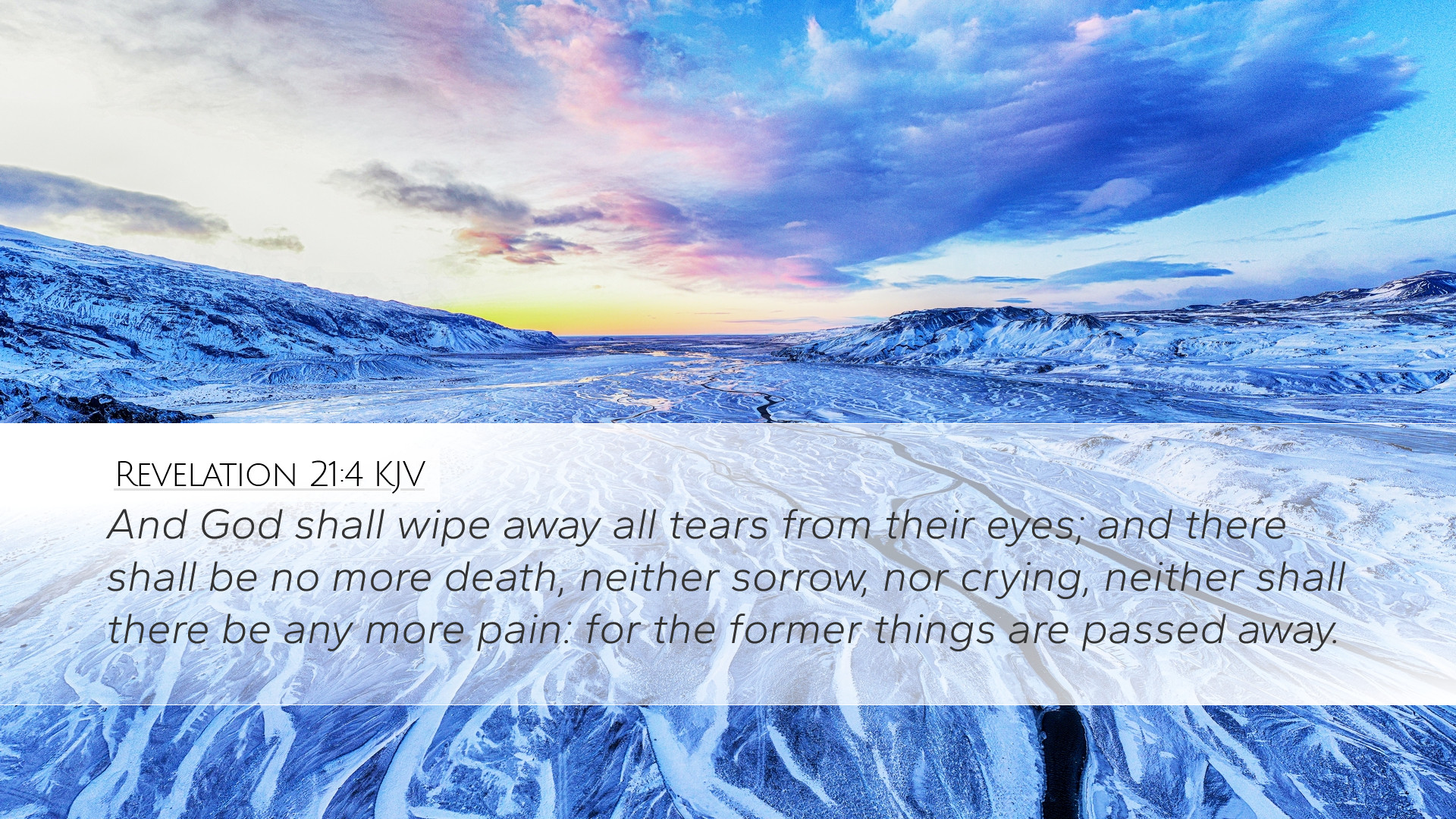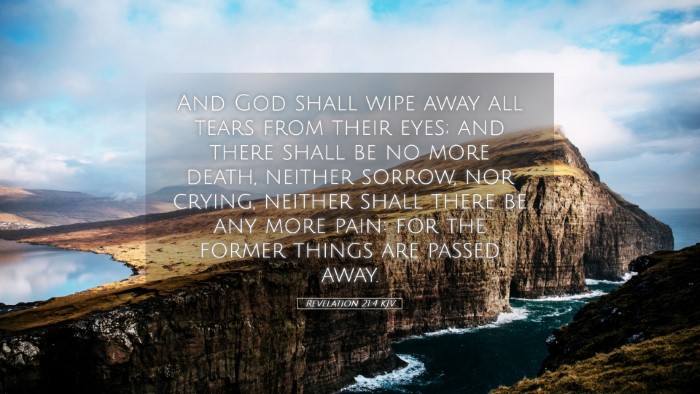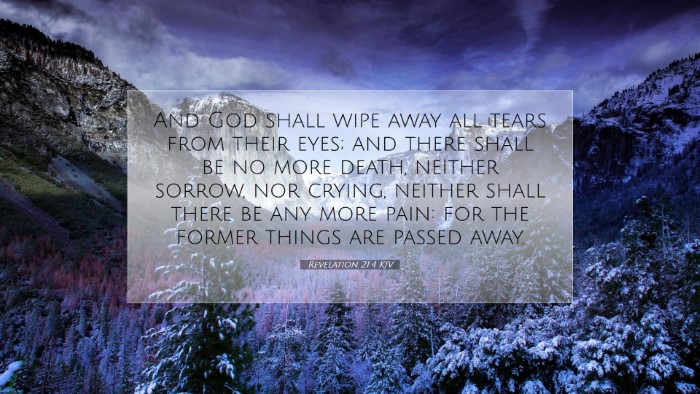Commentary on Revelation 21:4
Bible Verse: "And God shall wipe away all tears from their eyes; and there shall be no more death, neither sorrow, nor crying, neither shall there be any more pain: for the former things are passed away." (Revelation 21:4, KJV)
Introduction
This verse is one of the most comforting passages in Scripture, encapsulating the promise of God’s ultimate restoration. It stands at the heart of the New Heaven and the New Earth, affirming the hope of eternal life and the absence of suffering. The insights from public domain commentaries such as those by Matthew Henry, Albert Barnes, and Adam Clarke shed light on its theological depth and pastoral significance.
Theological Insights
-
The Promise of a Pain-Free Existence
Matthew Henry emphasizes that the promise of God wiping away tears signifies the complete removal of grief and sorrow. This act illustrates the intimate care of God for His people, suggesting a personal touch in healing emotional wounds.
-
Death and Suffering
Albert Barnes points out the profound significance of the absence of death, sorrow, and pain. These are the harsh realities of the current existence but will be eradicated in the future state. This restoration reflects the divine intention of God, reaffirming creation's original design where death was not present.
-
Hope for the Persecuted
Adam Clarke adds that this promise becomes particularly poignant in the context of suffering and persecution faced by early Christians. The assurance of no more crying is a powerful reminder that God’s kingdom will bring ultimate justice and comfort to those who endure hardship.
Contextual Analysis
The verses surrounding Revelation 21:4 build a vivid picture of the eschatological hope for believers. Chapter 21 describes the vision of the New Jerusalem, symbolizing the fulfillment of God's promises. This context shows that the promise is not merely an abstract notion but a cornerstone of the coming kingdom of God.
-
The New Creation
The transition from the old to the new—'the former things are passed away'—indicates the transformative power of God. Matthew Henry notes that this obliteration of the past signifies hope for all believers who long for renewal in life.
-
God’s Presence
The importance of God's presence cannot be overstated. Albert Barnes elaborates that the intimacy of communion with God contributes to the absence of suffering. The relationship with God in the New Jerusalem negates the need for sorrow.
Practical Applications
For pastors, scholars, and students, Revelation 21:4 offers critical reflections for ministry, counseling, and teaching. The promise of consolation from God provides a framework for understanding suffering in a broader context of hope.
-
Comfort in Counseling
In pastoral care, this verse serves as a powerful tool for comforting those in mourning. Reminding individuals of the hopeful future God has in store fosters resilience and affirms their faith in God's promises.
-
Assurance in Teaching
In teaching settings, emphasizing the certainty of God’s future restoration can bolster faith amidst trials. Adam Clarke highlights the need for believers to remain steadfast, grounded in the hope of God’s love.
Conclusion
Revelation 21:4 encapsulates the ultimate hope of believers, the promise of a future where God Himself addresses the pain and anguish experienced in this world. Through insights from Matthew Henry, Albert Barnes, and Adam Clarke, the verse emerges as a source of profound comfort and encouragement for those navigating a broken world. As we anticipate the fulfillment of God's promises, let us find strength in this assurance and reflect the hope contained within this sacred scripture.


